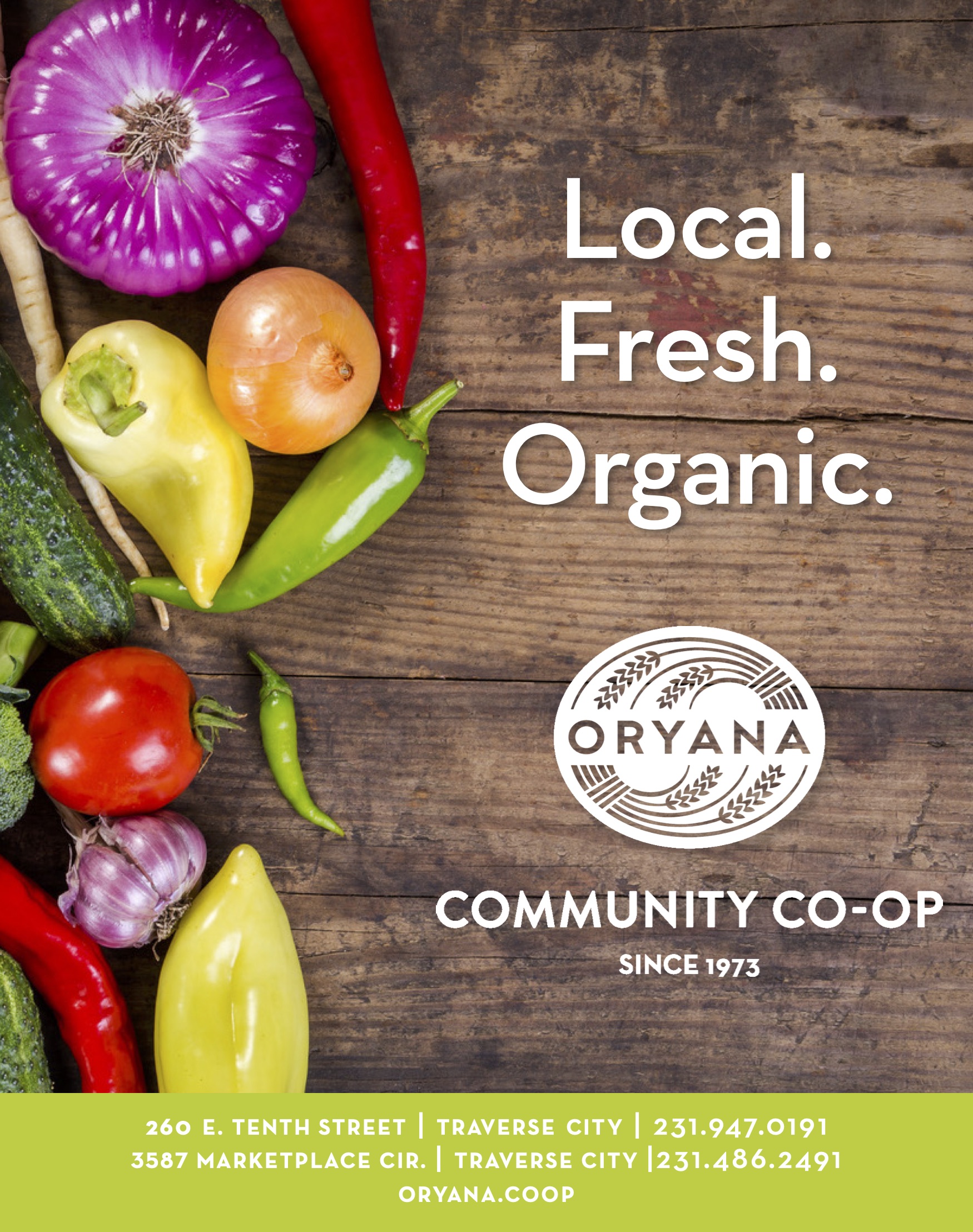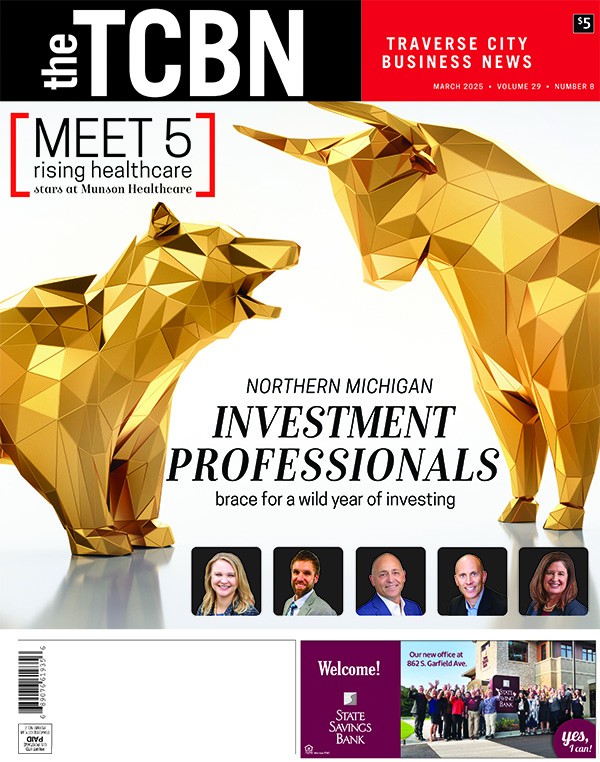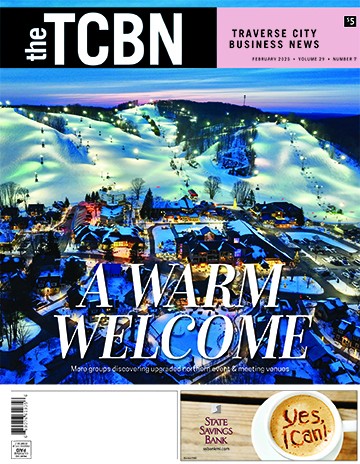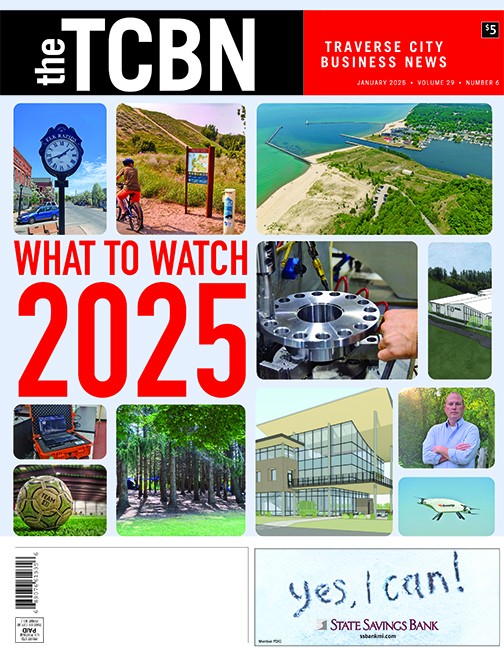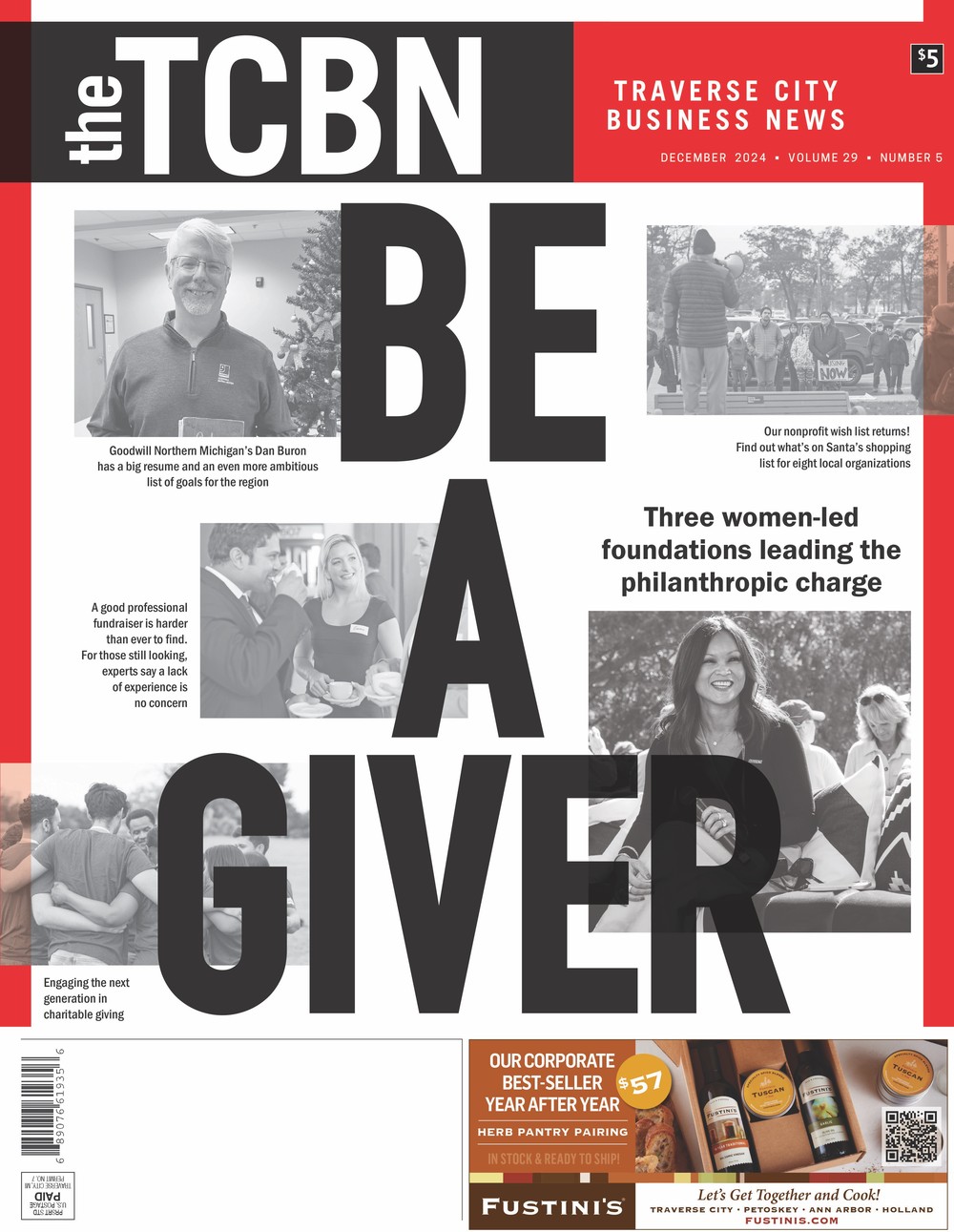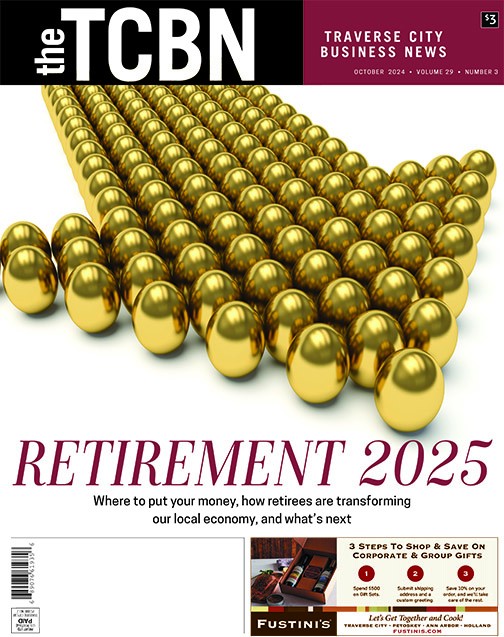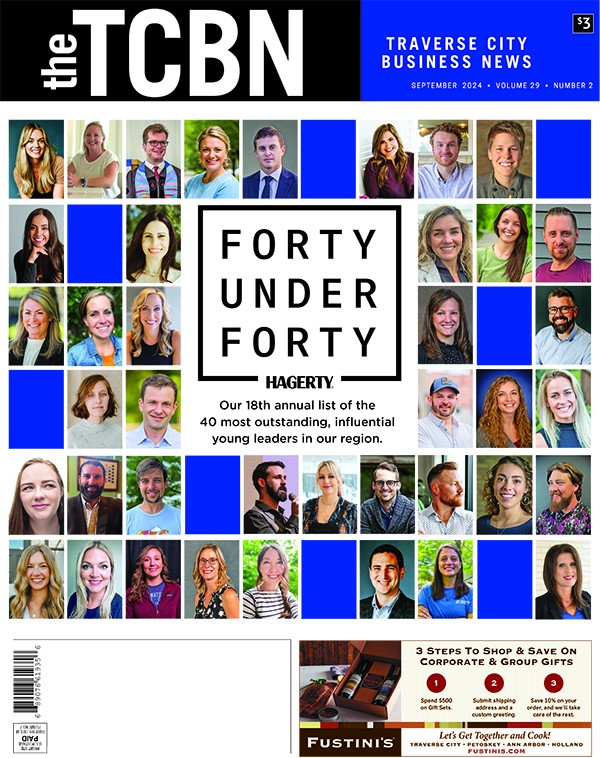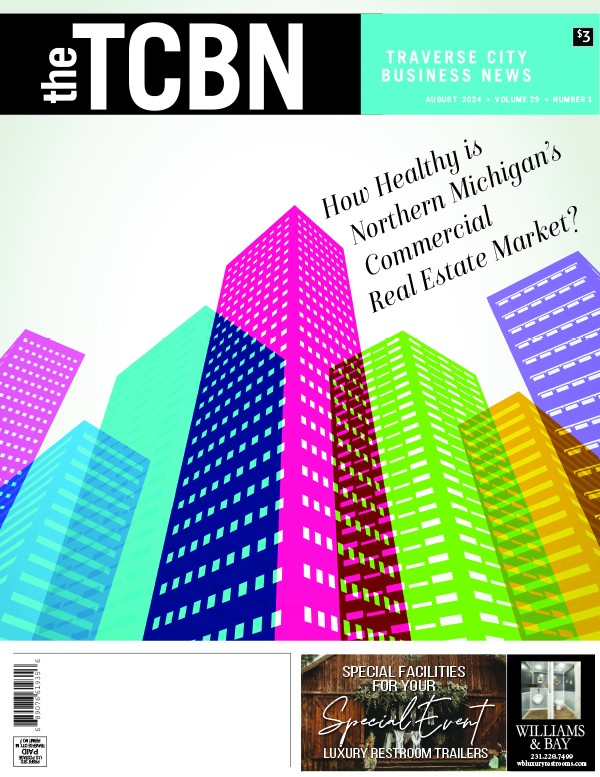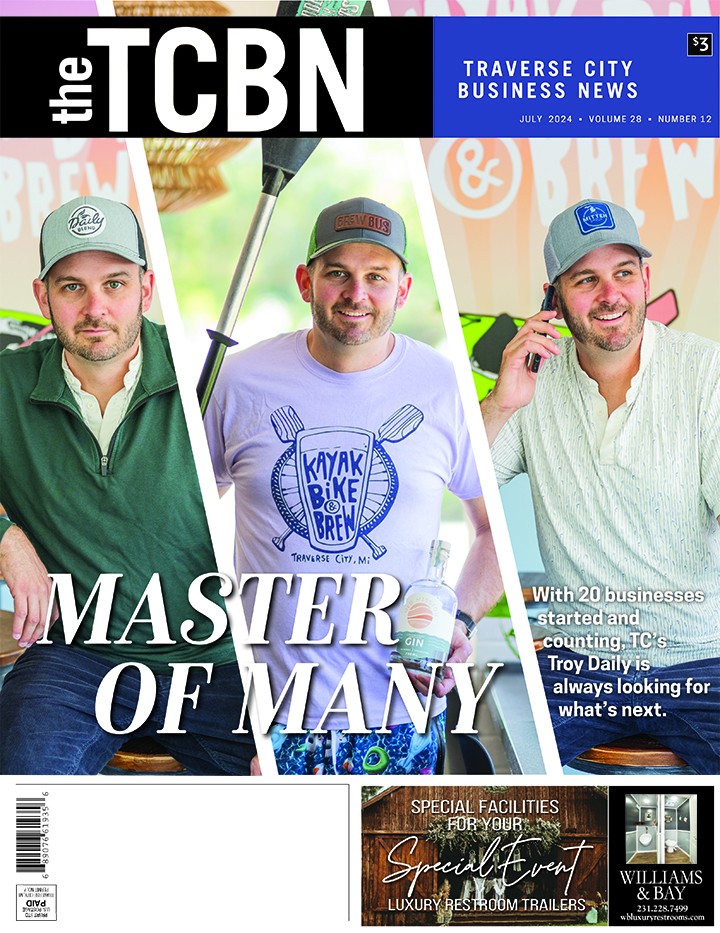Oh, Christmas Tree: Inside Dutchman Tree Farms, the Midwest's largest Christmas tree operation
April 2025
Dutchman Tree Farms is a big operation. How big?
The company sells between 600,000 and 900,000 Christmas trees each year, grown on a whopping 9,000 acres (that’s 14 square miles) around its headquarters in Missaukee County and spilling into several neighboring northern Michigan counties.
All told, the Manton-based business is likely the largest single Christmas tree operation east of the Mississippi River (North Carolina has many prolific producers, but very few that rival Dutchman’s scale) and is one of the top four or five in the entire country.
“We did (the math one time), and one out of every 26 homes in the whole nation with a live Christmas tree has a Dutchman tree,” said founder Steve Vanderweide. “I’m pretty proud of that.”
It’s hard work, out there on the land. It requires patience and perseverance. But those involved couldn’t be happier to be doing it.
“It’s really nice to think about how many touches you have in homes across the country during what is, for us, a very important holiday,” co-owner Chris Maciborski said. “We take a lot of pride in creating that beauty.”
A Dutch boy from Arlene
There was a time in the postwar years when Wexford and Missaukee counties produced more Christmas trees than any other counties in the United States. Several factors combined to make this possible, including the discovery that Scotch pines grew very well in the region’s sandy soil and a lack of other dominant industries.
“Land was very, very cheap back then, and a seedling was maybe a nickel,” Vanderweide said. “The tree industry really blossomed, and back in those days every kid that went to school worked in Christmas trees. It was the only job there was.”
Vanderweide, a native of Arlene – halfway between Manton and Lake City – was one of those kids. After growing up and serving in the Vietnam war, he came back and tried to make a go of doing something other than Christmas trees in Grand Rapids. It didn’t last.
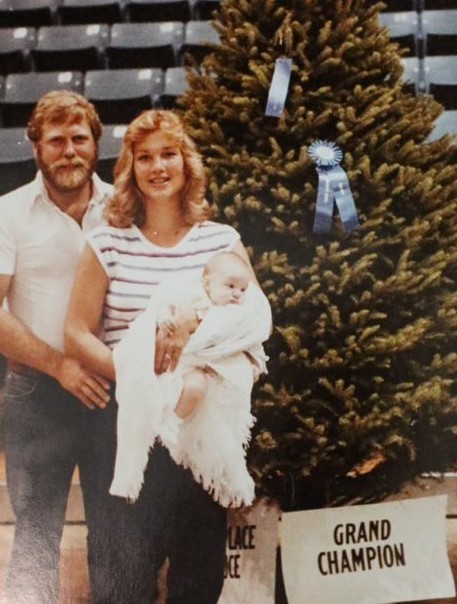 Steve and Deb Vanderweide
Steve and Deb Vanderweide“I tried being a truck driver, I tried being a plumber. My brother was a plumber, and he owned his own company,” he said. “But I eventually said ‘I’m going home.’ I’d rather prune trees the rest of my life than be a plumber.”
He came back up “dead broke” with new wife Deb in tow and first began working for an old boss before starting out on his own. In those days many tree farmers brought shipments to large specialty markets to sell and promote themselves. Steve and Deb did just that for many years in Atlanta, Georgia, at the time one of the country’s industry hotspots.
Things were mostly fine, but the Vanderweides felt like they were getting lost in the crowd. They were in a different spot every year, and Steve felt strongly that if they were going to succeed, they needed something memorable – they needed a brand.
One night, while in their motel room “in a shady part of town,” they put into motion a plan to rebrand on the spot before the next day’s market.
“We used to just call it Vanderweide Farms, but people were never going to remember that,” Vanderweide said. “So I went and got some plywood, and she got some white paint. We made (big cutouts of clogs) in our motel room that night, and Deb painted ‘Dutchman’ on it. From there, our business gained every year.”
Steve and Deb raised six girls, all two years apart, while they grew the business into one of the largest in the country over the next several decades. He cites three major events as key to that growth.
The first was a pioneering shift toward growing the now nationally dominant Frasier fir at scale – perhaps the first company in Michigan to do so. The second was a conscious shift toward wholesaling to big box outlets, which put Dutchman trees in front of millions of customers.
“We became the first tree company to develop a palletizer, which opened us up to the chain store market – the Walmarts and so forth,” he said. “That was huge. The whole industry was changing, and I could see where it was going.”
The third was his continued acquisition of thousands of acres of land as the Christmas tree industry in northern Michigan contracted considerably and forced several other operations out of business.
“I picked up about 4,000 acres for $200 an acre (from an operation that was foreclosed on), but I had to go to some old Dutch friends who lent me the money at 19% interest,” he said. “I still have that note in my desk from when I paid 19% interest.”
The modern Dutchman
While Michigan as a state now ranks third behind Oregon and North Carolina in total Christmas tree production, Missaukee County is still the fifth ranked county in the
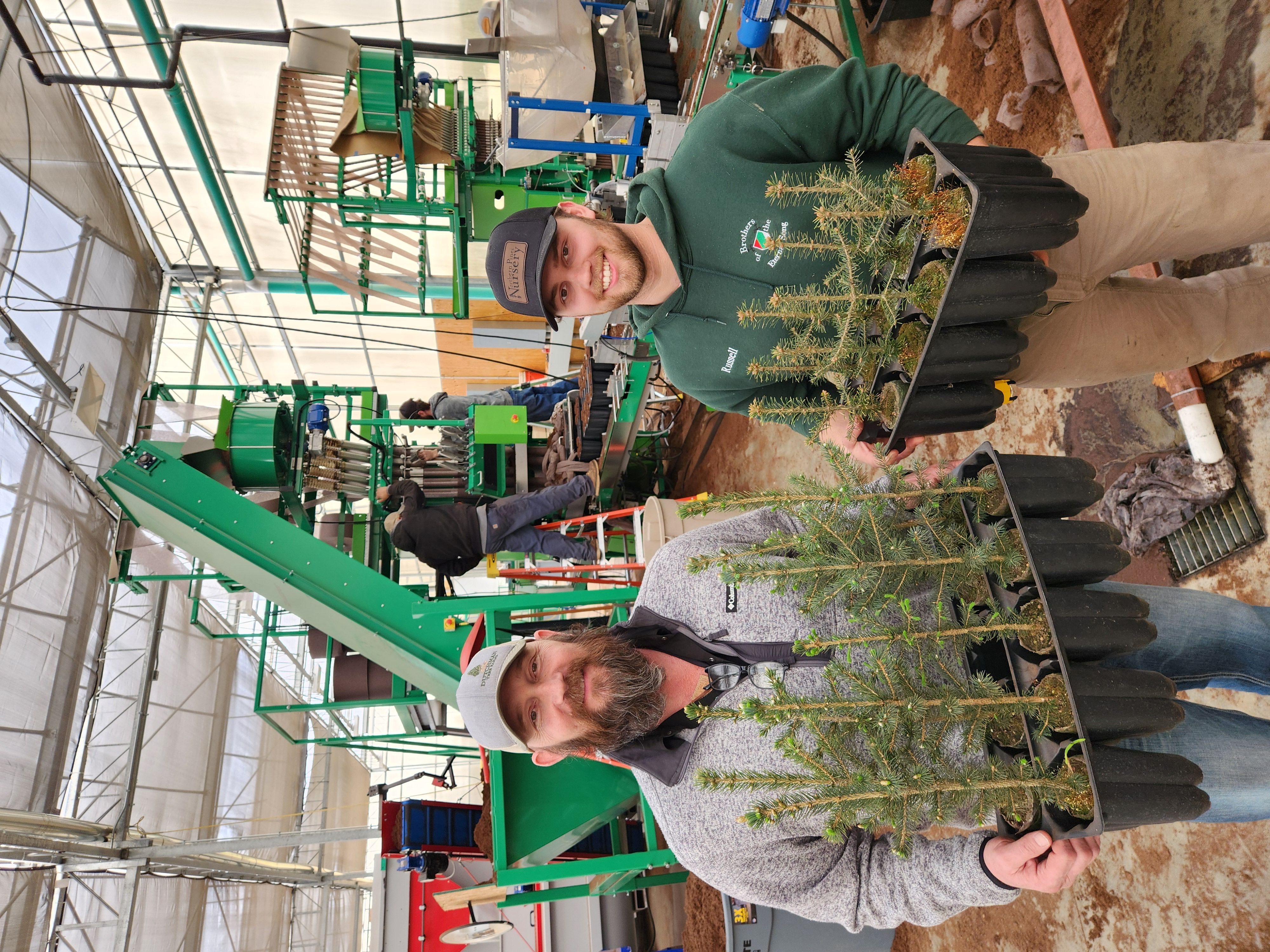 Chris and Elijah Maciborski
Chris and Elijah Maciborskientire nation due to Dutchman’s operations.
The business is now owned and run by Maciborski (Vanderweide’s son-in-law) and Joel Hoekwater (Vanderweide's nephew). Vanderweide has two other sons-in-laws who work there, along with one grandson (Maciborski’s son Elijah).
While there is some choose-and-cut offered, the business is almost entirely wholesale, with sales to Home Depot, Lowe's, Ace Hardware and many smaller chains and other outlets primarily east of the Rocky Mountains. There’s been periods where they dabbled in direct-to-consumer online sales, including on Amazon, but that was for the birds.
“It's difficult to sell that way. There's a lot of logistics that are involved,” Maciborski said. “It's easier just to load them on semis.”
Dutchman offers more than Christmas trees. They sell seedlings, container-grown evergreen stock and balled-and-burlap trees for landscaping along with wreaths, roping and other Christmas greenery. All of this comes from almost 10 varieties of trees, something that gives Dutchman a competitive edge.
“We sell a much larger variety than most farms, and it’s because we've got unique growing conditions in Michigan that aren't present in other areas that help us to do that,” Maciborski said. “Our sandy soil is evergreen friendly.”
The trees are grown from seed picked on designated seed lots, then nurtured in a massive three-acre greenhouse near Lake City. They are later planted in the field and carefully cared for. The complete process for the average size tree ranges up to 14 years, though the newly built greenhouse has shortened the cycle and strengthened their stock.
“We’ve sped up the process with this greenhouse and cut two years off the growing cycle,” Maciborski said. “And that’s been huge for us in terms of what the tree is capable of and what problems we can avoid.”
Once a tree is in the field, it can’t just be left there. It needs to shaped, irrigated (depending on the weather), managed for pests and much more. The shaping in particular is very labor intensive.
“To cultivate it en masse on acreage and to produce what the acreage will give you, you have to continually shape that tree so it doesn't get too wide,” Maciborski said. “If you want the pyramidal shape, you have to shape it, and then you have to shear it.”
As with most other large agricultural operations in the Midwest, much of this work is done by migrant workers. The company has about 50 full-time local employees and several hundred additional visa workers in the busy season.
“That's the hardest thing about the Christmas tree business is there's so many touches, so labor's always an issue,” Maciborski said. “You can’t do it without bringing in other people.”
Migrant work aside, Vanderweide’s descendants aren’t afraid of getting their own hands dirty. Elijah, like his dad and grandfather before him, grew up working in the fields with his friends. Maciborski is proud to see the pride taken by his son and countless others who all contribute to the final product in this way.
“A lot of times those kids are trimming trees that are two or three feet tall, and they're setting the foundation for that tree, turning it into what it is when we sell it,” Maciborski said.
Maciborski and the rest of the Dutchman family enjoy the process from seed to sale.
“I really enjoy watching the crops grow,” he said. “When you drive into a harvest-ready Christmas tree field and you see the quality that's out there, there's a tremendous amount of satisfaction to see that process become complete knowing where it started.”
Vanderweide, who retired but is still very much around the business, is proud of the next generations who are now shepherding the operation into the future.
“I told the boys when they took over the farm, ‘If you're going to be successful in this business, you’ve got to be on top of this business. You’ve got to be leaders in this industry. You get on the national and state boards, you know where this industry is going before anyone else knows where it's going,’’ Vanderweide said. “And they’ve done that. They’ve become leaders.”
Dutchman will even host this year’s National Christmas Tree Association annual convention in July, bringing scores of industry guests to northern Michigan.
Aside from their passion for the business, Vanderweide and Maciborski also hold deeply religious convictions that drive their work and lives.
“All of this belongs to God,” Vanderweide said. “We’re men of faith, and we’re just managing this for the Lord. Once you start making it yours, you’re in trouble.”
From Ford Field to the White House
Dutchman has had its share of trees in notable locations. It’s provided the massive tree in Campus Martius in the heart of downtown Detroit for many years, serving as the Christmas centerpiece for the state’s largest city.
That’s not the only tree Dutchman is used to furnishing in Detroit. For several years they were responsible for a large tree in Ford Field, but that ended this past year after another company sold the organization on one of its products.
“We were really disappointed when they decided to put a fake tree up there,” Maciborski said. “They got popular, so this big artificial tree company went to them. It looks like crap.”
The Lions, Maciborski feels, are unlikely to get to the Super Bowl unless this egregious mistake is corrected.
“This definitely extended the curse,” he said.
And while Campus Martius and Ford Field are neat stories to tell, Vanderweide has one that’s even better. The state and national Christmas tree associations traditionally hold a nationwide contest, with the winner getting their tree to the leader of the free world.
“One of the greatest pinnacles (of my career) is that we got to furnish President (Ronald) Reagan with a Christmas tree,” he said. “We got to go to the White House with all of our kids, and we got to spend a whole week in Washington. They put us in VIP housing and we were on Good Morning America. It was an unbelievable experience.”




